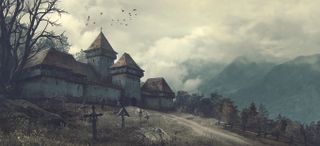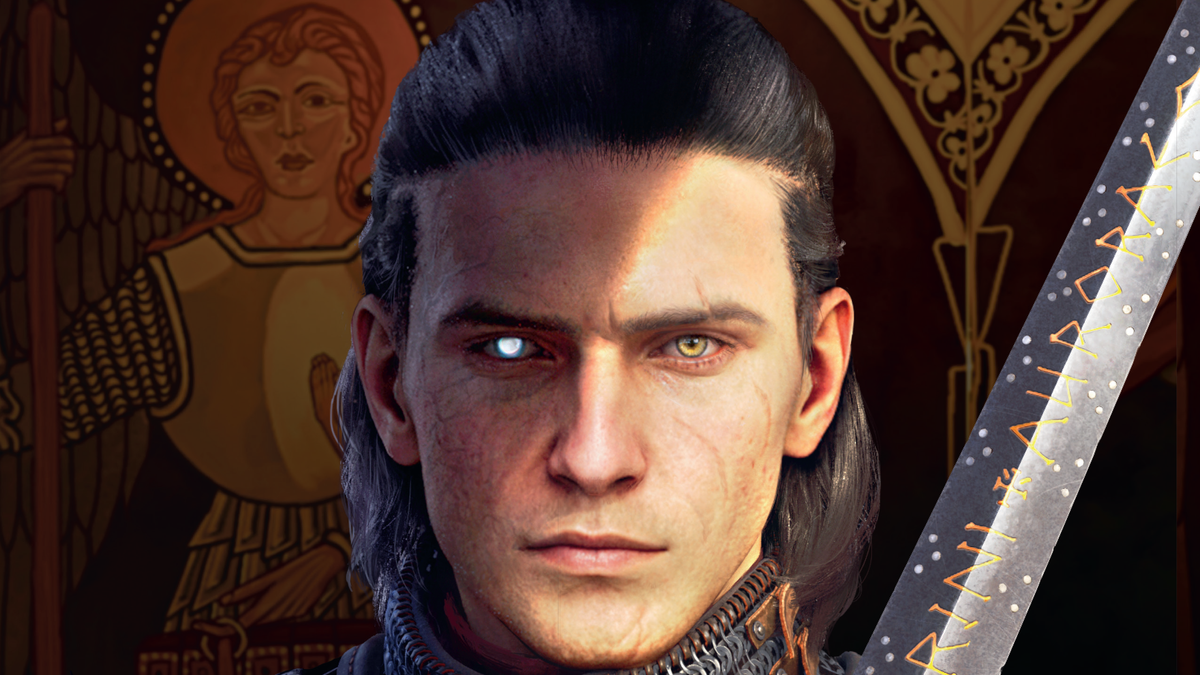When PC Gamer visited The Blood of Dawnwalker's developer, Rebel Wolves, for our upcoming, world-exclusive issue of PC Gamer magazine, we spoke directly to the much-anticipated ARPG's design director, Daniel Sadowski, about its unique 'time as a resource' mechanic, and how it plays into the game's wider narrative sandbox approach where gamers create their own story through their choices.
"The time system is a core element of our narrative sandbox," Sadowski says. "It moves only when you do the content (such as a quest or task), because we do not want the time system to be there to rush the player or to stress them out. We want the time system to be part of the narrative experience, and part of the whole ‘both action and inaction have consequences’ [approach].
“It will work in interesting ways. It will definitely force you to make choices at some points, like what to do, and what to ignore, because you will also have to choose which content you want to do, and which content you want to ignore, in order to maximise your chances of defeating the main enemy. But you will be able to choose between different ways to approach the problem, and that all ties into the narrative sandbox again.”
To me, this time as a resource system sounds potentially incredible, with an interlocking system of content and decisions that is based on a time-limited day and night cycle, with each choice affecting other aspects of the game world in reactive, immersive ways. I asked The Blood of Dawnwalker's game director, Konrad Tomaszkiewicz, to explain Rebel Wolves' thinking behind its introduction and how they feel it will impact the gamer's experience.
"For example, when you’re playing The Witcher 3," Tomaszkiewicz notes, "and you know that Ciri needs help, but you decide to go play Gwent – it’s something which, you know... you feel that it’s a game, and it’s a really good game. But it’s a game. And maybe if you had some resource, and you know that maybe if you don’t go, something would happen – then your thinking about this game would be different, and maybe the immersion would be better, and maybe your emotions would be different.”

From my perspective, that reality break Konrad is talking about in games can often be hilarious, with key game characters taking time out from saving the world in an end of days scenario to go and kick back in tavern, spend time decorating their home and garden, or generally pratting about with mad companions. There's definitely fun to be had there. But there's no denying that it also does tentpole that you're playing a game and, often, that can lead to a break in immersion. So I can see how knowing that the time you have is limited could really help crystalise what you're going to do, and why your version of the game's protagonist, Coen, is doing it.
Key for me, though, is that the game's time does not progress when Coen is just exploring the setting of The Blood of Dawnwalker, the valley of Vale Sangora in the Carpathian Mountains, and only moves forward when a quest or task is completed. This means gamers won't feel any time anxiety when they just want to explore and drink in Rebel Wolves dark new RPG world.

 6 days ago
3
6 days ago
3









 English (US) ·
English (US) ·